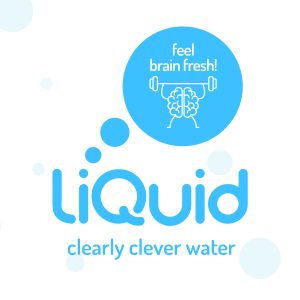L-Arginine is an amino acid. Amino acids are the building blocks of protein and play a key role in almost every biological process in the body. For certain individuals, the quantity of L-Arginine intake required may be greater than the amount consumed in the diet or produced by the body.
L-Arginine is converted to a compound called Nitric oxide by the enzyme Nitric oxide synthase1. Nitric oxide is a powerful neurotransmitter that helps blood vessels relax and improve circulation, therefore, increasing blood supply to the brain2.
L‐Citrulline is also an amino acid which has been demonstrated to raise plasma L‐Arginine concentration and augment Nitric oxide‐dependent signalling when ingested3.
Several studies and scientific papers have indicated that increasing L-Arginine intake and/or the levels of Nitric oxide can have multiple benefits:
- There is significant evidence to support that supplementation with L-Arginine, the precursor of Nitric oxide, can play a prominent role in the treatment of age-related degenerative disease such as Alzheimer’s Disease4. Related to this, studies carried out in animals have shown that Nitric oxide production decreases with ageing4,5.
- A study published in 2015 demonstrated that L-Arginine can counter the harmful effects of lipopolysaccharide-induced neuroinflammation on memory deficit and the capability to learn spatial tasks6.
- L-Arginine can reduce the risk and occurrence of vascular and heart diseases, erectile dysfunction, improve the immune response and inhibit gastric hyperacidity7.
- A deficiency in L-Arginine can lead to endothelial inflammation and cardiovascular disorders. However, increasing dietary Arginine can reverse these disorders8.
- A deficiency in Nitric oxide can also have a negative impact on renal (kidney) function and insulin sensitivity9.
- Sexual health is closely connected to endothelial health. Nitric oxide is a physiologic signal essential to male sexual function. Therefore, there is much scientific interest surrounding the positive effects of L-Arginine on male virility and fertility10.
- L-Arginine has been shown to improve the levels of fasting blood sugar and lipid profile (triglyceride and cholesterol) in healthy adult males11.
Reference list
1, Buchwalow, I., Schnekenburger, J., Tiemann, K., Samoilova, V., Bankfalvi, A., Poremba, C., Schleicher, C., Neumann, J. and Boecker, W., 2013. L-arginine-NO-cGMP signalling pathway in pancreatitis. Scientific reports, 3, p.1899.
2, Garthwaite, J. and Boulton, C.L., 1995. Nitric oxide signaling in the central nervous system. Annual review of physiology, 57(1), pp.683-706.
3, Schwedhelm, E., Maas, R., Freese, R., Jung, D., Lukacs, Z., Jambrecina, A., Spickler, W., Schulze, F. and Böger, R.H., 2008. Pharmacokinetic and pharmacodynamic properties of oral L‐citrulline and L‐arginine: impact on nitric oxide metabolism. British journal of clinical pharmacology, 65(1), pp.51-59.
4, Paul, V. and Ekambaram, P., 2011. Involvement of nitric oxide in learning & memory processes. The Indian journal of medical research, 133(5), p.471.
5, Reckelhoff, J.F., Kellum, J.A., Blanchard, E.J., Bacon, E.E., Wesley, A.J. and Kruckeberg, W.C., 1994. Changes in nitric oxide precursor, L-arginine, and metabolites, nitrate and nitrite, with aging. Life sciences, 55(24), pp.1895-1902.
6, Anaeigoudari, A., Shafei, M.N., Soukhtanloo, M., Sadeghnia, H.R., Reisi, P., Nosratabadi, R., Behradnia, S. and Hosseini, M., 2015. The effects of L-arginine on spatial memory and synaptic plasticity impairments induced by lipopolysaccharide. Advanced biomedical research, 4.
7, Gad, M.Z., 2010. Anti-aging effects of L-arginine. Journal of Advanced Research, 1(3), pp.169-177).
8, J. Lorin, M. Zeller, J.-C. Guilland, Y. Cottin, C. Vergely, and L. Rochette, “Arginine and nitric oxide synthase: regulatory mechanisms and cardiovascular aspects,”Molecular Nutrition & Food Research, 2013 and Y. C. Luiking, G. A. T. Have, R. R. Wolfe, and N. E. Deutz, “Arginine de novo and nitric oxide production in disease states,” American Journal of Physiology: Endocrinology and Metabolism, vol. 303, no. 10, pp. E1177–E1189, 2012).
9, (Blouet, C., Mariotti, F., Mathe, V., Tome, D. and Huneau, J.F., 2007. Nitric oxide bioavailability and not production is first altered during the onset of insulin resistance in sucrose-fed rats. Experimental biology and medicine, 232(11), pp.1458-1464.
10, Barassi, A., Corsi Romanelli, M.M., Pezzilli, R., Damele, C.A.L., Vaccalluzzo, L., Goi, G., Papini, N., Colpi, G.M., Massaccesi, L. and Melzi d’Eril, G.V., 2017. Levels of l‐arginine and l‐citrulline in patients with erectile dysfunction of different etiology. Andrology, 5(2), pp.256-261).
11, Pahlavani, N., Jafari, M., Sadeghi, O., Rezaei, M., Rasad, H., Rahdar, H.A. and Entezari, M.H., 2014. L-arginine supplementation and risk factors of cardiovascular diseases in healthy men: a double-blind randomized clinical trial. F1000Research, 3.
